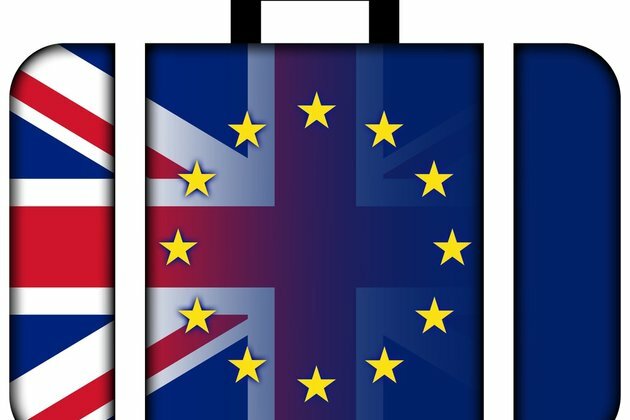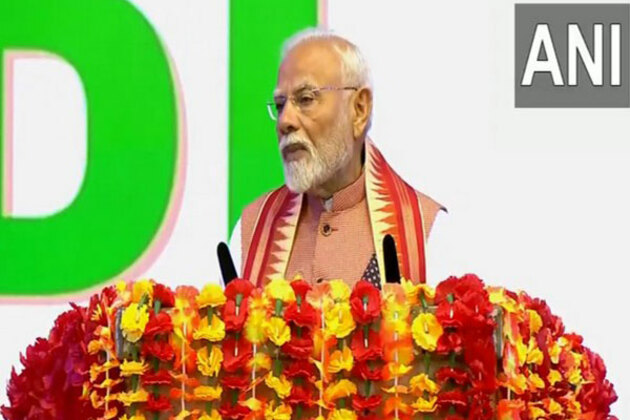Fact Check: will UK living wage cause rampant EU migration
The Conversation
14 May 2019, 12:06 GMT+10

The living wage is an excellent policy, but how will you stop it being a big pull factor for uncontrolled EU migration, given that it is far higher than minimum wages in other EU countries?
Boris Johnson speech from May 9
George Osbornes living wage announcement in July of last year substantially increased the national minimum wage from 6.70/hour for over-25s then to 7.20/hour since April, with a target of 9.00/hour by 2020.
Minimum wages are now in operation in 26 out of the 34 OECD countries, and 22 out of 28 EU member states. Germany only joined the list in January 2015 with a minimum wage of 8.50 (6.69), while some of the EU members without one thats Austria, Cyprus, Italy, Sweden, Finland and Denmark have sector level collective agreements and wage floors.
You can see from the table below that the UKs minimum wage is similar to the other major EU economies but higher than countries with lower levels of GDP per capita such as Bulgaria, Latvia and Romania. On the traditional minimum wage comparison as a proportion of median monthly earnings, however, the UK is broadly in line with most EU countries at about 50%.
This will rise to slightly over 55% with the 9/hour level in 2020 (factoring in forecast inflation). If that happens note the target has already been pared back several times from an initial 9.35/hour it would place the UK among the highest in the OECD.
The migration effect
No one can predict with any certainty how this UK policy will affect migration levels, but several variables are at play. The minimum wages in other EU countries will also have risen through to 2020, so the differential will be less pronounced than it appears. Johnsons argument also assumes that wages are the primary driver of migration, but researchers have shown otherwise.
While low domestic wages encourage outward migration, there is no straightforward relationship between high minimum wages and inward migration. Otherwise there would be a wave of migrants heading to Luxembourg and Colombia, both of which have very high minimum wages. Many EU migrants are motivated by employment opportunities while other factors include personal networks with other migrants already in situ.
Wages also only tell part of the story. Housing costs tend to be highest in London and the south east, where most jobs are created in the UKs service-driven economy, and this often largely offsets any benefit from additional wages.
Even if we were to accept that having a relatively high minimum wage would still make the UK a bit more attractive to workers from elsewhere in the EU, there could be an important positive in this: higher EU migration could improve the UKs stock of human capital. Migrants tend to be younger and better educated than the average worker, so it could enhance the UKs notoriously low productivity.
Indeed, the living wage policy is designed to improve this productivity gap by motivating companies to train up minimum wage staff to justify the extra salary. If this proves illusory and the policy instead leads to companies laying off workers to reduce costs, the result could be higher overall unemployment. Much lower youth unemployment in the UK relative to the likes of Spain and Greece is one of the main drivers of young people moving to the UK. If UK unemployment rises, levels of EU migration could conceivably fall.
Alternatively, if businesses do lay off staff to cope with higher wages they may turn to illegal immigrants to avoid paying the living wage. If so, perhaps a negative impact on businesses from the policy could turn out to boost illegal migration by unscrupulous employers.
Verdict
Boris Johnson is wrong to say the UK minimum wage is far higher than other EU members, but it is higher than in Eastern Europe and will probably become relatively higher than most EU countries by 2020. Whether this will affect migration, we just dont know. That said, these debates are very reminiscent of when Tony Blair first introduced the UK minimum wage in April 1999. Many economists and commentators forecast it would be highly detrimental to the UKs highly deregulated jobs market. This proved largely inaccurate and the same may be true this time.
Review
Mireia Borrell-Porta, Postdoctoral Research Officer in Family Policy, University of Oxford
The author correctly states that although the UK living wage is more or less in line with minimum wages in other EU major economies, it is indeed higher than in some Eastern European countries. The first part of Boris Johnsons statement is therefore too bold, but the fact that it holds true for some EU countries makes it worth considering the effect on EU migration.
Yet as the author highlights, this claimed correlation is unfounded the research evidence is scarce and inconclusive. And I would agree that wages are not the only important driver of migration. Employment opportunities, personal networks and other costs such as housing are key.
Above all, as the author again points out, the effect of the minimum wage on migration depends on how it affects employment. I agree that the empirical evidence is inconclusive here. There is no evidence from the research that a minimum wage increases unemployment. On the other hand, the Office for Budget Responsibility is predicting that the living wage will increase unemployment by 60,000.
What we do know is that European migrants tend to be younger and better educated than UK native workers. This suggests they might not benefit from the increased minimum wage, and that migration may actually be good for the UK economy, as it boosts productivity. Indeed recent research shows that EU immigration has not had significantly adverse effects on employment, wages, inequality or public services for people born in the UK.
The text has been amended previously it said that Colombia is in the OECD.
 Share
Share
 Tweet
Tweet
 Share
Share
 Flip
Flip
 Email
Email
Watch latest videos
Subscribe and Follow
Get a daily dose of Middle East Star news through our daily email, its complimentary and keeps you fully up to date with world and business news as well.
News RELEASES
Publish news of your business, community or sports group, personnel appointments, major event and more by submitting a news release to Middle East Star.
More InformationInternational Business
SectionOver 60 companies named in UN report on Israel-Gaza conflict
GENEVA, Switzerland: A new United Nations report alleges that dozens of global corporations are profiting from and helping sustain...
Persson family steps up H&M share purchases, sparks buyout talk
LONDON/STOCKHOLM: The Persson family is ramping up its investment in the H&M fashion empire, fueling renewed speculation about a potential...
Shell rejects claim of early merger talks with BP
LONDON, U.K.: British oil giant Shell has denied reports that it is in talks to acquire rival oil company BP. The Wall Street Journal...
Trump-backed crypto project gets $100 million boost from UAE fund
LONDON, U.K.: A little-known investment fund based in the United Arab Emirates has emerged as the most prominent public backer of U.S....
Australian PM rejects US pressure to ease biosecurity rules
SYDNEY, Australia: Australia will not ease its strict biosecurity rules during trade talks with the United States, Prime Minister Anthony...
PM Modi announces OCI cards for 6th generation of Indian origin citizens of Trinidad and Tobago, says "India welcomes you"
Port of Spain [Trinidad and Tobago], July 4 (ANI): Prime Minister Narendra Modi on Thursday (Local Time) announced that citizens of...
International
SectionWhite House meeting between Trump, Netanyahu on July 7
WASHINGTON, D.C.: President Donald Trump will meet Israeli Prime Minister Benjamin Netanyahu at the White House on Monday. President...
Over 60 companies named in UN report on Israel-Gaza conflict
GENEVA, Switzerland: A new United Nations report alleges that dozens of global corporations are profiting from and helping sustain...
UK lawmakers desigate protest group as terrorist organization
LONDON, UK - Lawmakers in the United Kingdom have voted overwhelmingly to proscribe the direct-action group Palestine Action as a terrorist...
Dalai Lama to address Buddhist conference, reveal succession plan
DHARAMSHALA, India: The Dalai Lama is set to address a significant three-day conference of Buddhist leaders this week, coinciding with...
US Supreme Court backs Texas efforts to shield minors online
WASHINGTON, D.C.: In a significant ruling last week, the U.S. Supreme Court upheld a Texas law requiring age verification for users...
Turkey, France battle wildfires amid early Europe heatwave
ISTANBUL/PARIS/BRUSSELS: As searing temperatures blanket much of Europe, wildfires are erupting and evacuation orders are being issued...













